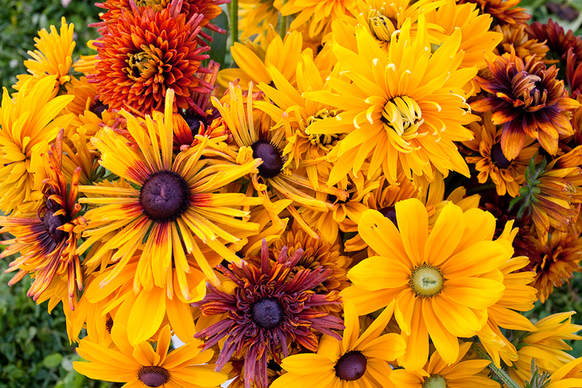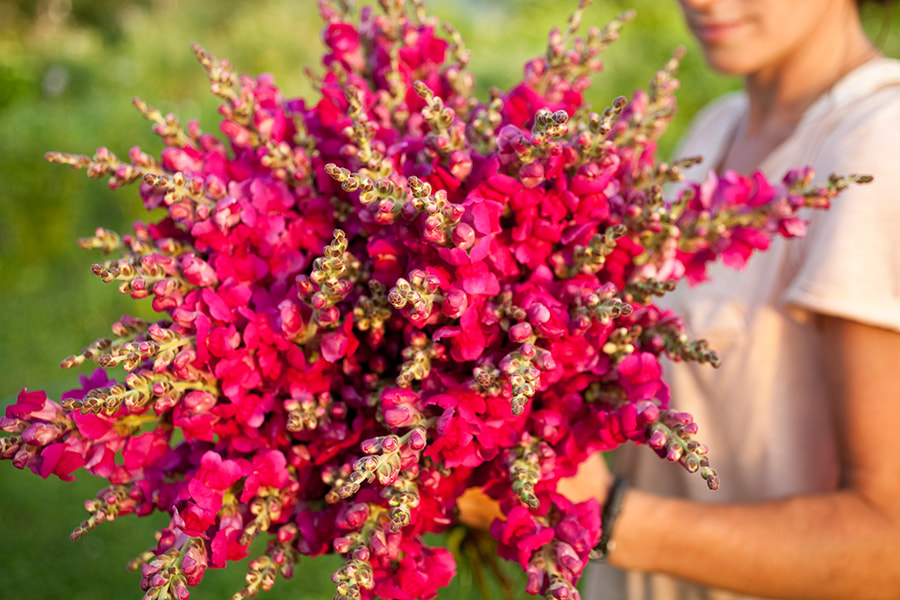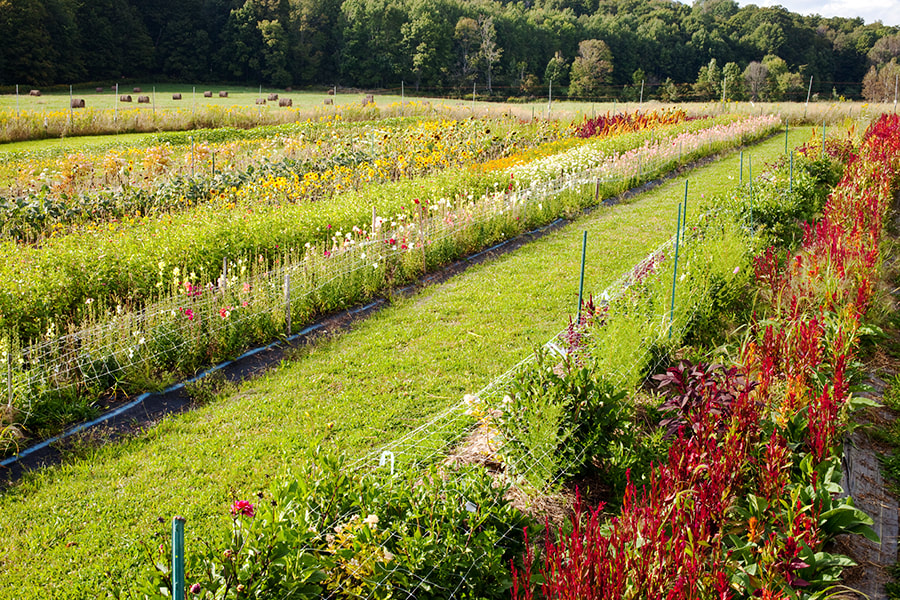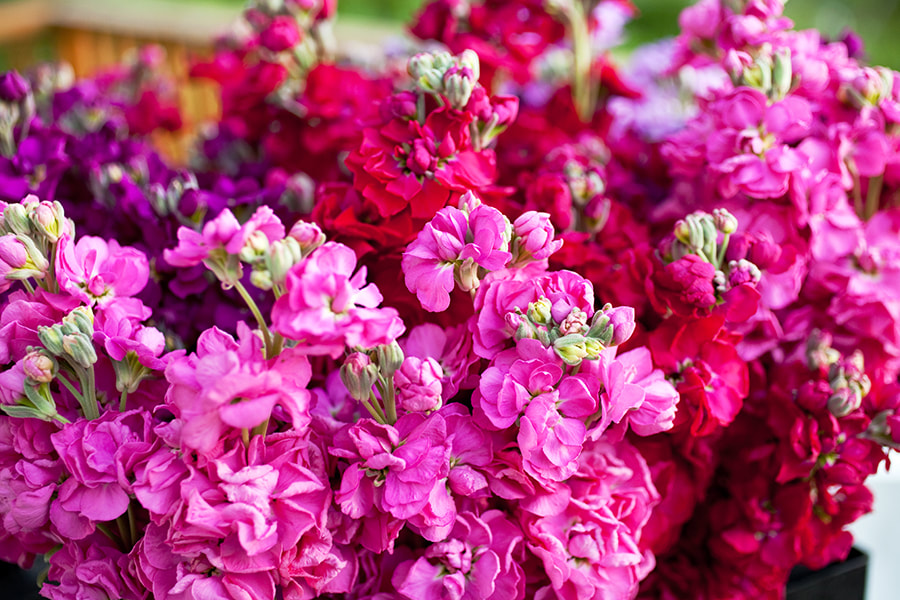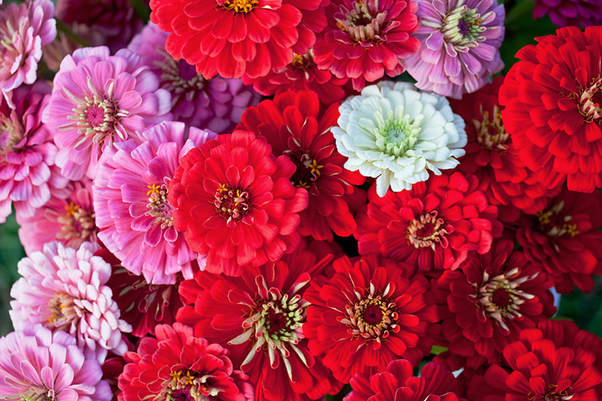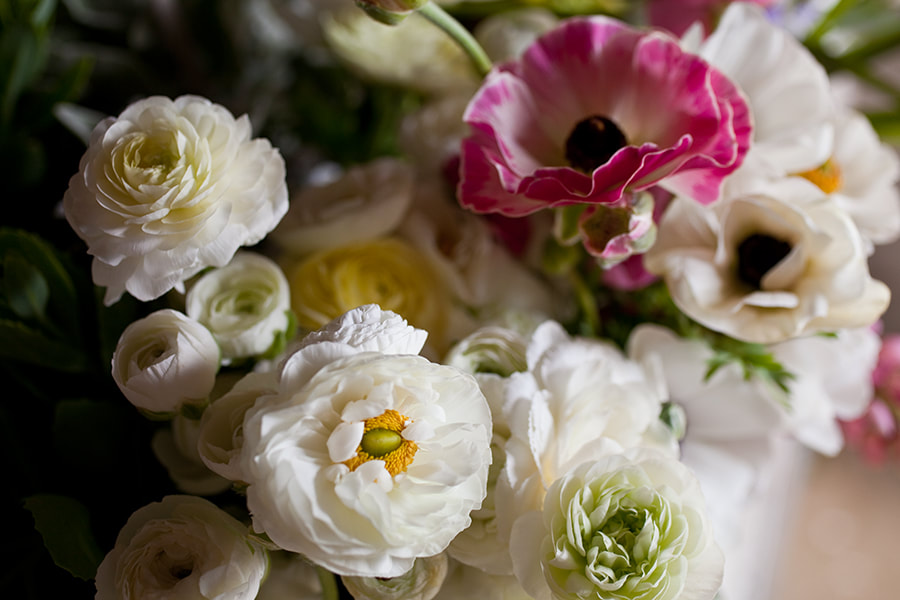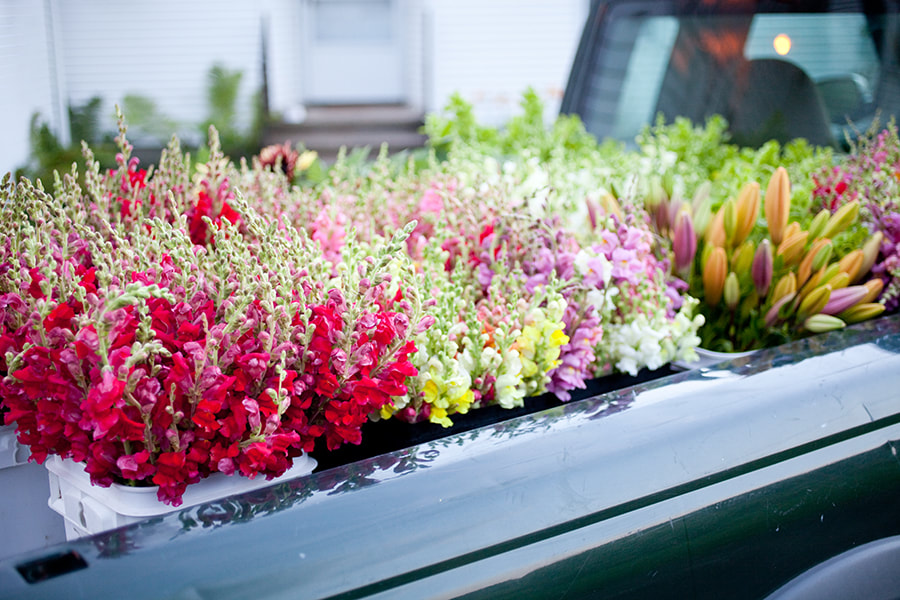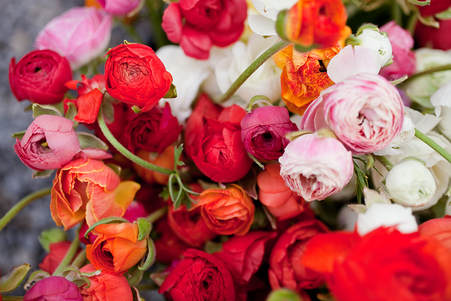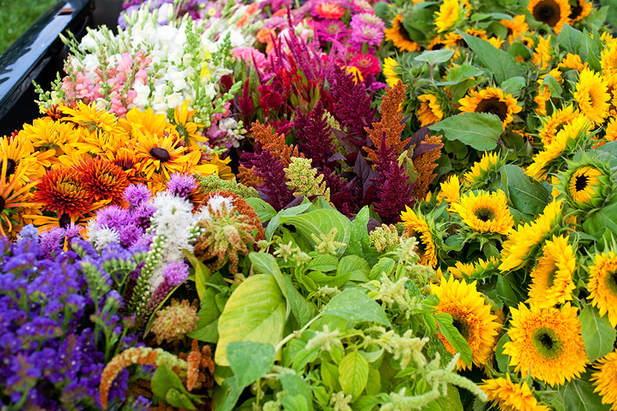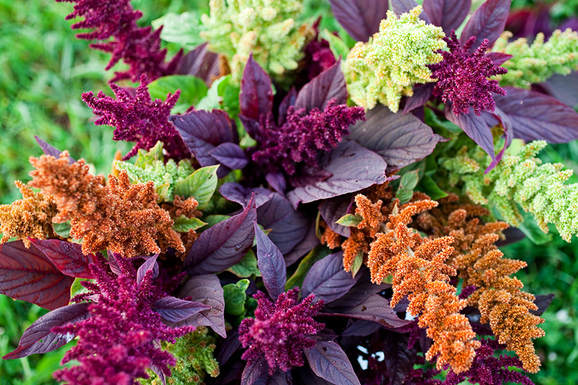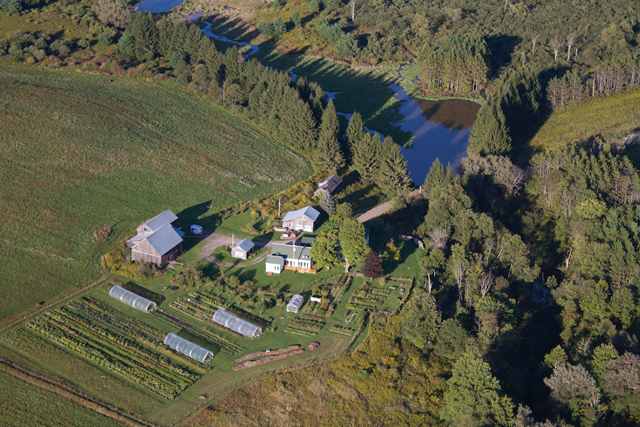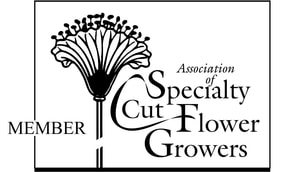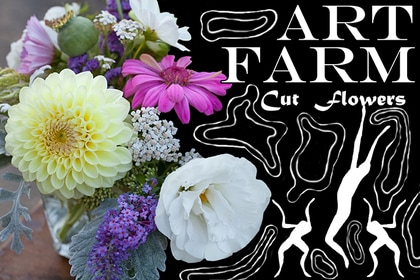Our Growing Practices
We specialize in growing lush and lively flowers carefully picked from our fields and delivered directly to your vase. We are committed to using sustainable growing practices that respect the vitality of the land. Our local, sustainably grown flowers are more lively, colorful, fragrant, and diverse than conventional flowers. They are not just beautiful. They are healthier for the people who grow them, healthier for the people who buy and enjoy them, and healthier for everything in their environment.
We do not use any chemicals in our growing methods. No herbicides, pesticides, or petroleum based fertilizers. Our soil is amended through the use of organic certified manure and hay, cover crops, compost, leaves, and homemade fish emulsion. Our goal is to build the soil structure through minimal tillage practices and small scale high intensive planting. Our combined practices support, and create environments for pollinators, beneficial insects, and animals to thrive. We understand the responsibility we have to the soil and environment which feeds us, and are unwilling to compromise its health with toxic chemicals for short term profit.
We specialize in growing lush and lively flowers carefully picked from our fields and delivered directly to your vase. We are committed to using sustainable growing practices that respect the vitality of the land. Our local, sustainably grown flowers are more lively, colorful, fragrant, and diverse than conventional flowers. They are not just beautiful. They are healthier for the people who grow them, healthier for the people who buy and enjoy them, and healthier for everything in their environment.
We do not use any chemicals in our growing methods. No herbicides, pesticides, or petroleum based fertilizers. Our soil is amended through the use of organic certified manure and hay, cover crops, compost, leaves, and homemade fish emulsion. Our goal is to build the soil structure through minimal tillage practices and small scale high intensive planting. Our combined practices support, and create environments for pollinators, beneficial insects, and animals to thrive. We understand the responsibility we have to the soil and environment which feeds us, and are unwilling to compromise its health with toxic chemicals for short term profit.
Support Your Local Farm Economy
There is a high unaccounted for environmental cost in the sales of cheap, well traveled flowers. 80% of the flowers sold in the US are imported from other countries. We are doing our small part to make local flowers accessible to our region as a part of a “slow flowers” movement, the growing renaissance in the U.S. to bring back the local flower farm. By buying local flowers you support small farms in your community and contribute to the revival of the American flower farm, which had nearly gone extinct in the face of cheap imported flowers.
Conventional flowers flown in from abroad average a 1,000 mile commute and a high fuel cost to get to your table. Imported flowers travel from farms in South America to auctions in Holland, to Miami for a cargo check-in, to truckers, wholesalers, retailers and you. Why contribute to the incredible waste of energy and natural resources involved in pedaling flowers thousands of miles through air and land when your local farmer grows lovely bouquets just up the road?
Avoid Harmful Chemical Residues
Flowers grown abroad commonly use pesticides banned in the US, and in large quantity. They expose the workers and consumers alike to these chemical residues. Unlike produce, illegal chemical residues on imported flowers are not regulated as closely by the USDA. Imported roses are commonly dunked in fungicide before their long flight, and all cargo planes of flowers are fumigated before they enter U.S. borders to prevent the migration of potential pests.
Floral foam is commonly used in the floral industry to hold an arrangement together. Although it makes arranging easier, floral foam is mostly made of non-biodegradable plastic, containing toxic chemicals and carcinogens, namely formaldehyde and Carbon black.
Local Farmers vs. an Industry of Middlemen
Despite the farmer’s sun up to sun down labor, 75% of the consumer price of the standard imported cut flower goes to the middlemen: the transporters, wholesalers & re-sellers. The average flower farmer wage is $6 a day abroad, with the expectation to work up to 70 hours a week without overtime pay. In contrast, flowers bought directly from a local flower farm support livable farm wages in your local economy.
Waste and Trash
Conventional flowers are shipped in big boxes, wrapped in plastic sleeves and plastic ice packs most of which is not recyclable, and goes directly in a landfill. Of these international flowers, 50% are tossed out before they ever make it to the consumer.
And Finally...
Please support your local farmers. And whenever possible, please support those that are growing without the crutch of harmful chemicals, those who are investing in our shared future.
Conventional flowers are shipped in big boxes, wrapped in plastic sleeves and plastic ice packs most of which is not recyclable, and goes directly in a landfill. Of these international flowers, 50% are tossed out before they ever make it to the consumer.
And Finally...
Please support your local farmers. And whenever possible, please support those that are growing without the crutch of harmful chemicals, those who are investing in our shared future.
